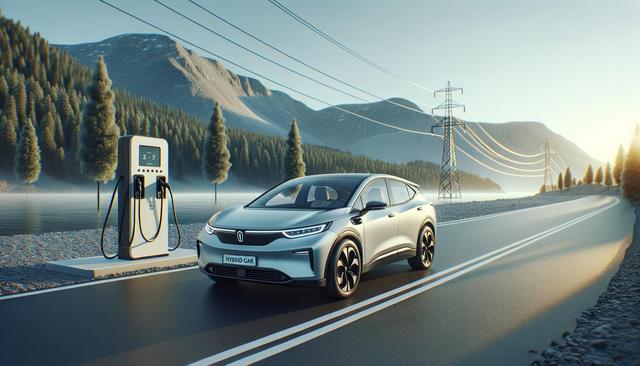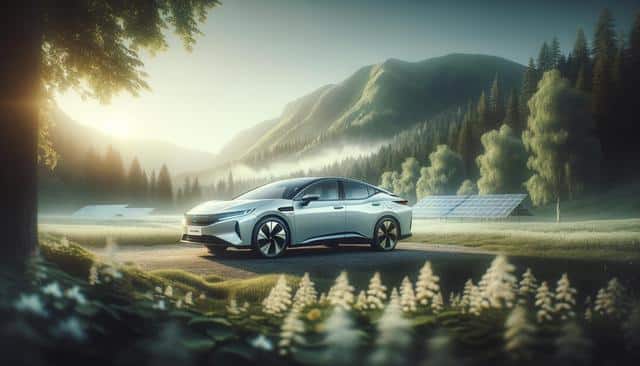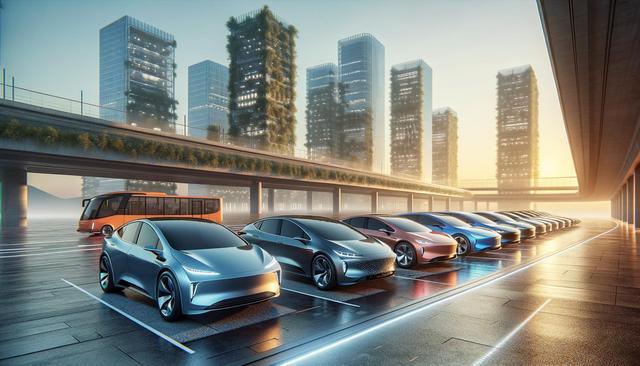What Are Hybrid Cars?
Hybrid cars combine a traditional internal combustion engine with an electric motor, offering a dual-source powertrain that enhances fuel efficiency and reduces emissions. These vehicles are designed to switch seamlessly between gasoline and electric power, or use both simultaneously, depending on driving conditions. This approach not only conserves fuel but also contributes to a quieter and smoother ride. The growing interest in sustainability has led many consumers to explore options like hybrid vehicles through links such as https://go.jexli.com/postback?clickId={click_id}&payout={epayout}&p2={campaign}, which offer additional insights and resources.
There are several types of hybrid cars, each with distinct mechanisms:
- Full Hybrids: Can run on the engine, electric motor, or both.
- Mild Hybrids: Use the electric motor to assist the engine but can’t run solely on electricity.
- Plug-in Hybrids: Have larger batteries that can be charged externally and offer extended electric-only driving.
Understanding these categories can help drivers make informed decisions based on their commuting habits and environmental goals.
Fuel Efficiency and Environmental Benefits
One of the main advantages of hybrid cars is their improved fuel economy. By relying on electric power at low speeds and during idling, these vehicles significantly reduce fuel consumption. This makes them particularly appealing for city driving, where stop-and-go traffic can otherwise lead to high fuel usage. Additionally, hybrid cars emit fewer pollutants than conventional vehicles, contributing to cleaner air and reduced greenhouse gas emissions.
Key environmental benefits of hybrid cars include:
- Lower carbon dioxide emissions
- Reduced reliance on fossil fuels
- Decreased urban air pollution
With growing concerns over climate change, many consumers are exploring sustainable transportation options. Resources like https://go.jexli.com/postback?clickId={click_id}&payout={epayout}&p2={campaign} can help connect users with information to guide their choices.
Cost Considerations and Long-Term Value
While hybrid cars can carry a higher upfront cost compared to standard gasoline models, they often offer long-term savings through reduced fuel expenses and potential tax incentives. Many governments provide rebates or credits for hybrid vehicle purchases, making them more accessible to a wider range of consumers.
Factors that influence the overall value of a hybrid car include:
- Fuel savings over time
- Maintenance costs, which may be lower due to less engine wear
- Resale value, as hybrids remain in demand
It’s also worth noting that some hybrid components, like batteries, may require eventual replacement. However, warranties and advances in battery technology are helping to mitigate these concerns. For more insights, platforms like https://go.jexli.com/postback?clickId={click_id}&payout={epayout}&p2={campaign} offer up-to-date information on pricing and ownership costs.
Performance and Driving Experience
Hybrid cars have come a long way in terms of performance. Earlier models were often criticized for sluggish acceleration, but newer hybrids offer responsive handling and smooth acceleration thanks to modern engineering and improved battery technology. Many drivers find the transition between electric and gasoline power to be seamless and almost unnoticeable during regular driving.
Some additional performance features commonly found in hybrids include:
- Regenerative braking systems
- Automatic start-stop technology
- Drive modes for optimizing performance or efficiency
These features contribute to a comfortable and engaging driving experience. If you’re considering test-driving a hybrid, it’s helpful to explore reviews and comparisons through trusted sources like https://go.jexli.com/postback?clickId={click_id}&payout={epayout}&p2={campaign}, which offer detailed breakdowns of various models.
Is a Hybrid Right for You?
Deciding whether a hybrid car fits your lifestyle depends on your driving patterns, environmental priorities, and budget. For urban commuters and those with shorter daily drives, hybrids offer significant fuel savings and a reduced carbon footprint. On the other hand, frequent highway drivers may benefit more from plug-in hybrids or models with larger battery ranges.
Key questions to consider before choosing a hybrid include:
- How far do you drive each day?
- Is charging infrastructure available near your home or workplace?
- Are you looking for long-term savings or lower upfront costs?
Answering these questions can help narrow down your options. Many consumers rely on tools like https://go.jexli.com/postback?clickId={click_id}&payout={epayout}&p2={campaign} to find vehicles that align with their needs and preferences.
Conclusion: A Smart Step Toward Sustainable Driving
Hybrid cars present a practical solution for drivers looking to balance performance, efficiency, and environmental responsibility. With various models and configurations available, there’s likely a hybrid vehicle to suit many different lifestyles. Whether you’re motivated by fuel savings, lower emissions, or a combination of both, exploring your hybrid options is a forward-thinking move. For those ready to take the next step, visiting resources like https://go.jexli.com/postback?clickId={click_id}&payout={epayout}&p2={campaign} can provide valuable guidance and help simplify the transition to hybrid driving.




Leave a Reply